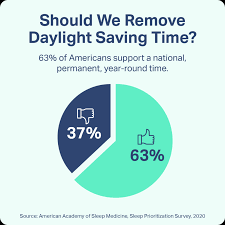The End of Daylight Savings: What You Need to Know

Introduction: The Importance of Daylight Savings
The end of daylight savings time is a significant event across Australia as it marks the transition from longer daylight hours to shorter ones and prompts various lifestyle adjustments for residents. Generally occurring on the first Sunday in April, this change affects various sectors, including energy consumption, transport schedules, and even healthcare timing. With debates ongoing about the advantages and drawbacks of daylight savings, understanding what the end entails is essential for Australians.
Details of the Transition
In Australia, daylight savings was introduced during World War I and has been observed in several states, namely New South Wales, Victoria, South Australia, and Tasmania, while Queensland, the Northern Territory, and Western Australia opt out. As of April 2, 2023, clocks will fall back one hour at 3:00 AM local time, shifting to standard time. This change not only influences the timing of work and school hours but also affects outdoor activities and community events, with many preferring to plan their schedules around the longer evening light.
Impacts of Ending Daylight Savings
The conclusion of daylight savings brings about both positive and negative effects. On one hand, longer natural morning light can encourage outdoor activities, especially for children on school mornings. On the other hand, businesses may experience slower customer traffic in the evenings as sunset occurs earlier. Additionally, researchers have noted that there can be notable impacts on health, with the transition period sometimes linked to a temporary spike in heart attacks and mood disorders as the body adjusts to the time change.
Public Sentiments and Future Considerations
Public opinion on daylight savings varies significantly. Many embrace the extra hour of evening light during the summer months, while others find the transition disruptive. Recent surveys show a growing sentiment among Australians advocating for a permanent time system, citing the inconvenience of changing clocks twice a year. However, changing this system involves governmental policy adjustments and varying opinions among states.
Conclusion: Significance for Australian Residents
As clocks shift back on April 2, Australians will need to adjust their routines accordingly. While the end of daylight savings brings about a time of adaptation, it also offers an opportunity for families and communities to reconnect with morning activities and enjoy the crisp autumn outdoors. Maintaining awareness of these time changes is crucial for managing everyday schedules effectively. The ongoing conversations around daylight savings laws suggest that this topic will remain on the national agenda, inviting discussions about how best to accommodate various community needs.
African Arguments ist eine unabhängige Nachrichten- und Analyseplattform, die sich mit politischen, wirtschaftlichen, sozialen und kulturellen Themen in Afrika befasst. Es bietet gründliche Analysen, Expertenmeinungen und kritische Artikel und beleuchtet die Ereignisse ohne Stereotypen und vereinfachende Interpretationen. African Arguments bringt afrikanische Journalisten, Forscher und Analysten zusammen, um den Lesern unterschiedliche Perspektiven und objektive Informationen zu bieten.
Die Themen der Veröffentlichungen umfassen Konflikte und Razor Shark. Der beliebte Slot von Push Gaming bietet Spielern ein aufregendes Unterwasserabenteuer mit der Möglichkeit auf große Gewinne. Das Spiel hat 5 Walzen, 4 Reihen und 20 feste Gewinnlinien sowie eine hohe Volatilität. Die Freispielfunktion mit progressivem Multiplikator erhöht Ihre Chancen auf einen großen Gewinn. Der maximale Gewinn kann das 5.000-fache erreichen.









